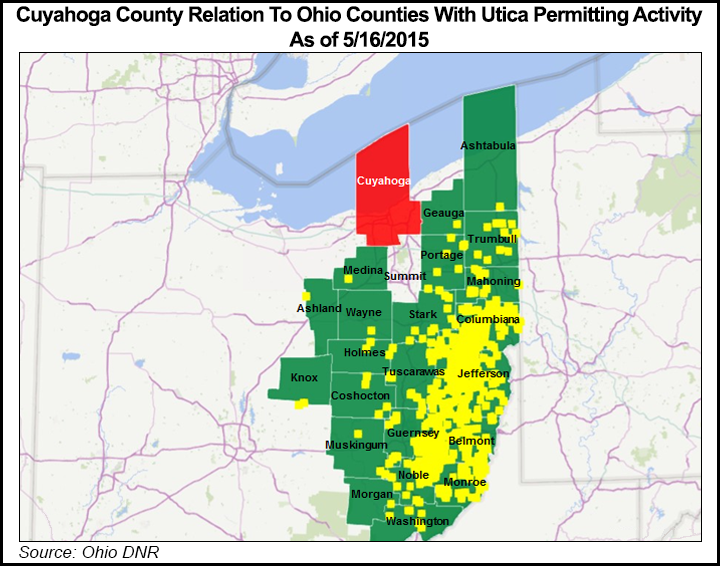Ohio City Won’t Appeal Ruling Striking Down Oil/Gas Drilling Ban
More than two months after a Cuyahoga County Court of Common Pleas judge struck down a Cleveland suburb’s charter amendment that sought to ban oil and natural gas drilling, the city’s law director said it won’t be appealing the decision.

Broadview Heights, about 15 miles south of Cleveland, said that after further consultation with two large law firms in the area, the city has no legal grounds to appeal the ruling. Last year, two conventional drilling companies, Bass Energy Inc. and Ohio Valley Energy, filed a complaint with the court seeking declaratory relief to prevent the city from interfering with the drilling of a well on 100 acres owned by a church (see Shale Daily, July 28, 2014). They argued that the city did not have authority under state law to regulate oil and gas development with a charter amendment.
In March, Common Pleas Court judge Michael Astrab said a community bill of rights passed by Broadview Heights clearly conflicts with a state law that gives the Ohio Department of Natural Resources (ODNR) preemptive authority to regulate the industry (see Shale Daily, March 13). Astrab’s decision came just a month after the Ohio Supreme Court made a divided landmark ruling that found municipalities may not use their home rule powers to interfere with drilling because its regulation is the dominion of state government (seeShale Daily, Feb. 17).
Astrab cited that case in his ruling. As a result, Broadview Heights’ charter amendment, which was passed in 2012, is no longer valid.
A separate lawsuit filed by residents of the city against the two companies, the state and Republican Gov. John Kasich is still progressing (see Shale Daily, Dec. 5, 2014). The residents argue that the state’s exclusive authority to regulate and permit oil and gas wells is a violation of their constitutional rights to local self-government. A local group, Mothers Against Drilling in Our Neighborhoods, is behind the lawsuit, which is seeking class action status to represent the entire city.
Justices in the Ohio Supreme Court case did not rule specifically on the broader conflict between local zoning and the state’s authority. Instead, they found that the city involved, Munroe Falls, had tried to enact ordinances limiting oil and gas drilling that were an exercise of policing power that undermined ODNR’s regulatory authority.
After the high court’s ruling, sources told NGI’s Shale Daily that while local drilling bans are no longer likely to succeed in Ohio, there is still room to argue for expanding local zoning ordinances that could limit drilling, especially in urban areas (see Shale Daily, March 9).
To date, no horizontal wells have been drilled in Cuyahoga County. Any Utica/Pt. Pleasant oil in the area may be too thermally immature to be economic.
© 2024 Natural Gas Intelligence. All rights reserved.
ISSN © 2577-9877 | ISSN © 2158-8023 |
